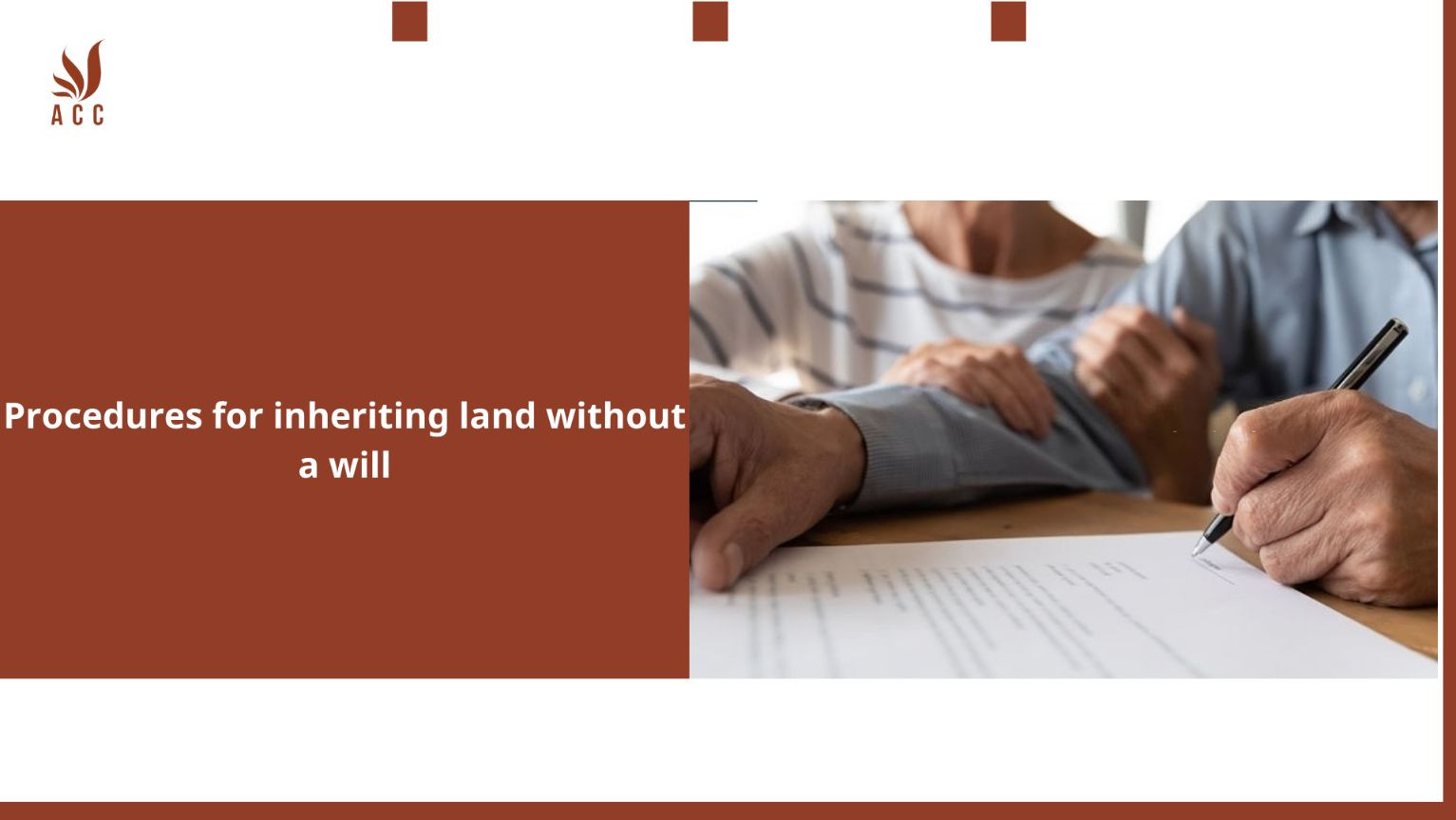Inheriting land without a will typically involves a legal process known as intestate succession. When a person passes away without a valid will, the distribution of their assets, including land, is determined by the laws of the state or country where the property is located. Here are the general procedures for inheriting land without a will:
1. Confirm the Lack of a Will:
- Verify that the deceased person did not leave a valid will. This may involve searching their personal records, consulting with an attorney, or checking with the local probate court.

Procedures for inheriting land without a will
2. Identify the Legal Heirs:
- Determine who the legal heirs are based on the laws of intestate succession in the relevant jurisdiction. Common heirs may include a surviving spouse, children, parents, or other close relatives.
3. Petition for Probate:
- If the land and other assets require probate, a legal process is initiated by filing a petition with the local probate court. The court will appoint an administrator if necessary.
4. Inventory and Appraisal:
- An inventory of the deceased person's assets, including the land, is prepared. An appraisal of the land's value may be required.
5. Notice to Creditors:
- Creditors and potential claimants are typically notified of the deceased person's passing, allowing them to file claims against the estate for any outstanding debts or obligations.
6. Debts and Expenses:
- Debts, funeral expenses, administrative costs, and taxes are paid from the estate's assets before distribution to heirs.
7. Q&A
Q1. What are the procedures for inheriting land without a will?
- When someone passes away without a will, the process of inheriting land typically follows the laws of intestate succession, which vary depending on the jurisdiction. Generally, the steps involved in inheriting land without a will include:
a. Determine legal heirs: The first step is to determine who the legal heirs are according to the laws of intestate succession. This typically includes immediate family members, such as spouses, children, and parents, but can vary depending on the jurisdiction.
b. Obtain legal documentation: The legal heirs may need to obtain and provide necessary documentation, such as death certificates, proof of relationship, and any other required paperwork.
c. File a petition: The legal heirs may need to file a petition in the appropriate court to establish their rights to inherit the land. This may involve providing evidence of their status as legal heirs and any other required documentation.
d. Court proceedings: The court will review the petition and may hold proceedings to determine the rightful heirs and their respective shares of the land. This may involve hearings, testimony, and presentation of evidence.
e. Distribution of land: Once the court has determined the rightful heirs, the land will be distributed among them according to the laws of intestate succession. The specific process for transferring ownership will depend on the local laws and procedures.
Q2. Who are considered legal heirs in the absence of a will?
- The legal heirs in the absence of a will generally include immediate family members, such as spouses, children, and parents. However, the specific definition of legal heirs can vary depending on the jurisdiction and may include other relatives, such as siblings, grandparents, or even more distant relatives in some cases. It is important to consult the laws of intestate succession in the relevant jurisdiction to determine who qualifies as a legal heir.
Q3. Can the distribution of land without a will be contested?
- Yes, the distribution of land without a will can be contested if there are disputes or disagreements among potential heirs. Common reasons for contesting may include questioning the legitimacy of certain heirs, challenging the application of the laws of intestate succession, or claiming that the deceased had made other arrangements for the distribution of their assets. In such cases, the court may need to intervene to resolve the disputes and make a final determination.
Q4. Are there any disadvantages to inheriting land without a will?
- Inheriting land without a will may have certain disadvantages, such as:
a. Lack of control: Without a will, the deceased's wishes for the distribution of their land may not be known or followed. This can lead to outcomes that differ from what the deceased might have desired.
b. Potential disputes: In the absence of a clear will, there is a higher likelihood of disputes and disagreements among potential heirs, which can lead to prolonged legal proceedings and increased costs.
c. Inefficient distribution: The laws of intestate succession may not align with the deceased's intentions or the specific needs and circumstances of the heirs. This can result in an inefficient distribution of the land, potentially causing financial or practical difficulties for the heirs.
d. Limited flexibility: Without a will, the heirs may have limited flexibility in managing or transferring the inherited land, as they may be subject to legal restrictions or requirements.
Nội dung bài viết:






Bình luận